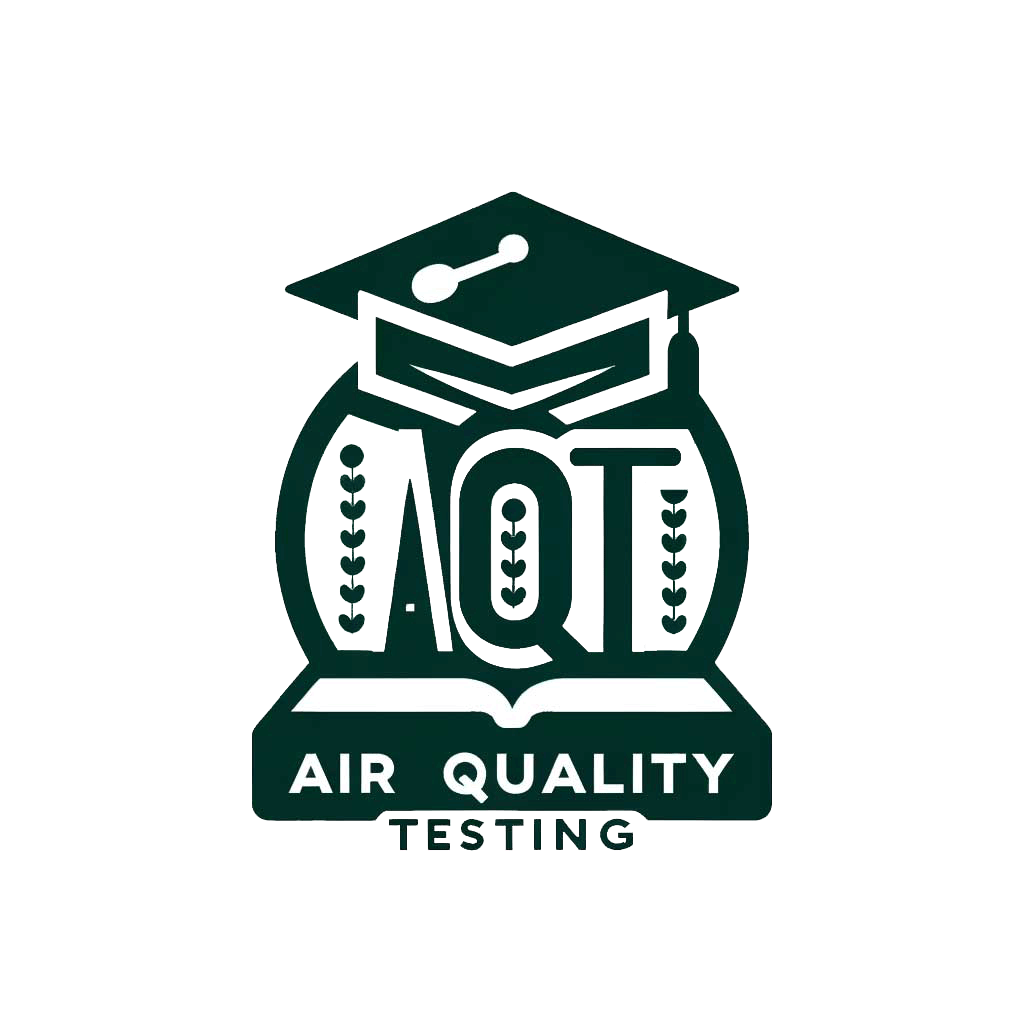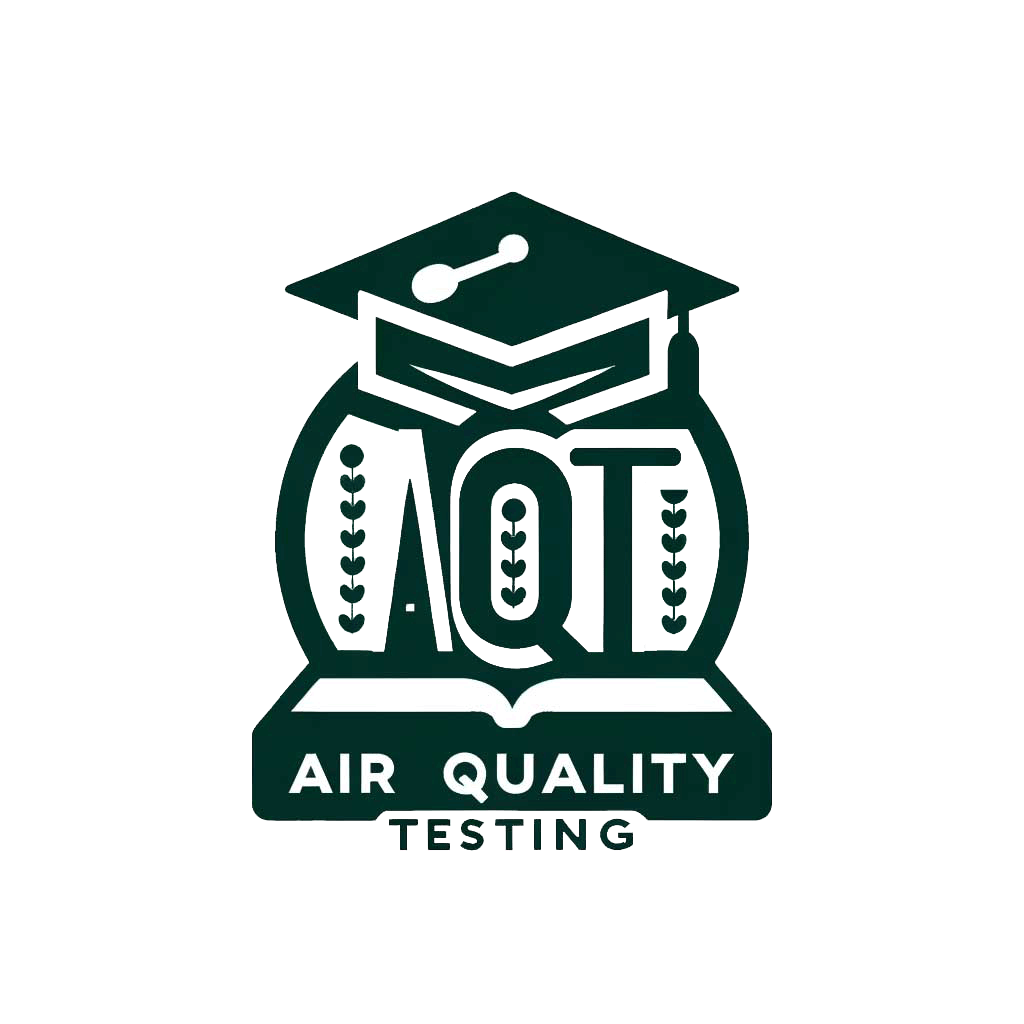Air Quality Testing


Choosing a Professional Tester
Qualifications and Certifications
When it comes to ensuring the accuracy and reliability of air quality testing, the qualifications and certifications of the professional tester you choose are paramount. Selecting a tester with the right credentials not only guarantees that the testing will be conducted using the latest standards and methodologies but also ensures that the results are trustworthy and actionable. Here’s a closer look at the importance of choosing testers with relevant certifications and experience, including references to notable IAQ certifications.
Importance of Certifications and Experience
- Expertise: Certified professionals possess the technical knowledge and expertise required to conduct comprehensive air quality tests, interpret results accurately, and recommend effective remediation strategies.
- Credibility: Certifications from recognized organizations serve as a testament to the tester’s commitment to quality and adherence to industry standards, enhancing their credibility and reliability.
- Up-to-Date Practices: Certified testers are often required to participate in continuing education to maintain their credentials, ensuring they are up-to-date with the latest testing technologies, standards, and health guidelines.
Notable IAQ Certifications
To ensure you are choosing a qualified professional for air quality testing, consider the following certifications and the organizations that offer them:
IAQCert Certified Indoor Air Quality Testing Technician (CIAQTT): This certification indicates that a technician has demonstrated proficiency in a range of topics related to indoor air quality testing, including understanding pollutants, testing methods, and interpreting results for effective mitigation.
American Council for Accredited Certification (ACAC): The ACAC offers several certifications for indoor air quality professionals, including the Council-certified Indoor Environmental Consultant (CIEC) and Council-certified Indoor Air Quality Manager (CIAQM). These certifications require proven field experience and knowledge in indoor air quality issues.
Board of Certified Safety Professionals (BCSP): The BCSP offers the Certified Safety Professional (CSP) certification, which, while broader in scope, includes elements of indoor air quality management as part of its comprehensive approach to safety and health.
Indoor Air Quality Association (IAQA): While the IAQA does not directly certify individuals, it provides education and training resources for IAQ professionals. Membership in the IAQA can be a good indicator of a professional’s commitment to staying informed about IAQ issues.
Institute of Inspection, Cleaning and Restoration Certification (IICRC): The IICRC offers certifications such as the Certified Mold Professional (CMP), which, though focused on mold, covers aspects of air quality related to mold detection, removal, and prevention.
Choosing the Right Professional
When selecting an air quality tester, consider their specific certifications, experience, and areas of expertise to ensure they align with your testing needs. It’s also advisable to review their professional history, ask for references, and inquire about their approach to testing and reporting results.
By choosing a tester with the relevant qualifications and certifications, you can be confident in the accuracy of the air quality assessment and the guidance provided for improving the indoor environment. This careful selection process is essential for protecting the health and well-being of occupants in any indoor space.
Scope of Services
When selecting a professional air quality tester, understanding the scope of services they offer is crucial to ensure they can meet your specific air quality testing needs. Professional testers provide a range of services, from identifying and measuring specific pollutants to developing comprehensive indoor air quality management plans. Here’s how to navigate these services and choose the right fit for your needs without repeating previously covered aspects.
Key Services Offered by Professional Testers
Pollutant Identification and Measurement: This fundamental service involves detecting and quantifying various air pollutants, including particulate matter, volatile organic compounds (VOCs), mold, and gases like carbon monoxide and radon. It’s essential for initial assessments and identifying sources of air quality issues.
Indoor Air Quality Assessments: Beyond basic testing, some professionals offer more comprehensive assessments that evaluate the overall indoor air quality. These assessments can include inspections for sources of pollutants, analysis of ventilation and HVAC systems, and recommendations for improving air quality.
Mitigation and Remediation Planning: Once pollutants have been identified, some testers can develop detailed plans for mitigating or remediating air quality issues. This might involve strategies for improving ventilation, removing or reducing pollutant sources, and implementing air purification systems.
Post-Remediation Verification: After remediation efforts have been completed, professional testers can perform follow-up testing to verify that air quality has improved and that pollutant levels are within acceptable ranges.
Ongoing Air Quality Management: For businesses or organizations, some testers offer services related to the ongoing monitoring and management of indoor air quality. This can include developing and implementing IAQ management plans, periodic re-testing, and consultation on best practices for maintaining good air quality.
Choosing the Right Services
Assess Your Needs: Begin by identifying your primary concerns and objectives. Are you dealing with specific health symptoms, noticing signs of mold, or concerned about the potential presence of radon? Your specific concerns will guide which services are most relevant to you.
Consider the Tester’s Expertise: Look for testers whose expertise aligns with your needs. For instance, if you’re concerned about mold, a tester with a strong background in mold assessment and remediation will be more beneficial than one focused primarily on chemical pollutants.
Review Comprehensive Solutions: If you’re seeking not just to identify but also to resolve air quality issues, prefer testers who offer a comprehensive range of services from assessment to remediation planning and verification. This ensures continuity and consistency in addressing your air quality concerns.
Budget and Investment: Consider the cost of testing services in relation to the potential health benefits and property value preservation. While cost is an important factor, investing in thorough and reliable air quality testing can provide significant long-term benefits.
By understanding the scope of services offered by professional air quality testers and aligning them with your specific needs, you can make an informed decision that ensures your indoor environment is healthy, safe, and conducive to well-being.
Cost Considerations
When it comes to selecting a professional air quality tester, understanding the cost implications is crucial for making an informed decision. The cost of air quality testing can vary widely based on several factors, including the type of tests conducted, the size of the area being tested, and the professional’s expertise. Here’s a breakdown of typical testing costs and the elements that influence them, ensuring no overlap with previously discussed topics.
Typical Costs of Air Quality Testing
Basic Testing Fees: Basic testing for common pollutants like mold, VOCs, or particulate matter can range from $200 to $500 for a standard residential property. These tests are often surface-level analyses, providing a snapshot of the air quality at the time of testing.
Comprehensive Assessments: More thorough indoor air quality assessments, which include a wide range of pollutants and may involve detailed inspections of HVAC systems, building materials, and structural considerations, can cost anywhere from $400 to over $1,000. The complexity of the assessment and the square footage of the area being tested are significant price factors.
Specialized Testing: Tests for specific pollutants, such as radon, asbestos, or lead, may require specialized equipment or techniques, adding to the cost. Depending on the pollutant, these tests can add several hundred dollars to the overall price.
Factors Influencing Testing Costs
Extent of Testing Required: The more pollutants you test for, the higher the cost. Comprehensive testing, which covers a broad range of potential pollutants, is more expensive but provides a more detailed overview of air quality issues.
Size and Complexity of the Property: Larger homes or buildings, as well as those with complex layouts or multiple HVAC systems, will require more time and resources to test thoroughly, leading to higher costs.
Location: The geographic location of your property can influence testing costs due to variations in travel expenses for the tester, regional labor rates, and the prevalence of specific pollutants in the area.
Expertise and Credentials of the Tester: Professionals with advanced certifications or specializations in air quality testing may charge more for their services. However, their expertise can provide more accurate results and effective solutions.
Navigating Cost Considerations
Get Multiple Quotes: To ensure you’re receiving fair pricing, obtain quotes from several professionals. This will give you a better sense of the market rates for the services you require.
Understand the Scope of Services: Clarify what is included in the quoted price. Some testers may offer package deals that include post-remediation testing or follow-up consultations, adding value to their services.
Invest in Quality: While it’s important to consider cost, investing in quality testing services can save money in the long run by accurately identifying problems and avoiding unnecessary remediation efforts.
By carefully considering these cost factors and conducting thorough research, you can select a professional air quality tester that offers reliable services within your budget, ensuring a healthier indoor environment without undue financial strain.
Asking the Right Questions
Selecting the right professional air quality tester is a critical step toward ensuring a safe and healthy indoor environment. By asking potential testers the right set of questions, you can gauge their expertise, understand their services, and make an informed decision. This approach ensures that the content provided does not overlap with previously discussed topics and offers fresh insights into the selection process.
Essential Questions to Ask Potential Air Quality Testers
What certifications do you hold?
- Inquire about their professional certifications and memberships in industry organizations. Look for certifications such as the Certified Indoor Air Quality Testing Technician (CIAQTT) from IAQCert or other relevant credentials that demonstrate their expertise and commitment to staying current in the field.
Can you describe your experience with similar environments or issues?
- Understanding their experience with similar properties or air quality concerns can provide insights into their ability to handle your specific needs.
What types of tests will you perform, and why?
- A competent tester should be able to explain the types of tests they recommend for your situation and the pollutants they aim to detect. This question helps ensure that the testing plan is tailored to your specific concerns.
How do you stay current with industry standards and technologies?
- Air quality testing technologies and standards are continually evolving. A professional tester should be engaged in ongoing education and aware of the latest developments in the field.
What is included in your testing service, and what are the costs?
- Clarify what the testing service entails, including the number of samples, the range of pollutants tested, report details, and the total cost. Understanding what’s included can help you compare services and costs effectively.
How will the results be presented, and will you provide recommendations?
- Ensure that the tester will provide a comprehensive report that not only includes the test results but also interprets these results and offers practical recommendations for addressing any issues.
What is your approach to privacy and data protection?
- Given the sensitivity of the data collected during air quality testing, it’s important to understand how the tester will protect your information and whether the results will be shared with any third parties.
Can you provide references or testimonials from past clients?
- Feedback from previous clients can offer valuable insights into the tester’s reliability, professionalism, and the effectiveness of their solutions.
Asking these questions will help you identify a qualified and reliable air quality tester who can provide the services you need. It ensures that you are informed about their qualifications, experience, and approach, enabling you to make a decision that aligns with your air quality goals and budget.
frequently asked questions
How does the number of occupants in a home or building impact indoor air quality and duct cleaning frequency?
The number of occupants significantly affects indoor air quality, with more people leading to faster dust and allergen accumulation. Duct cleaning frequency should be adjusted accordingly.
How does family living, especially with children and pets, affect the need for more frequent duct cleaning?
Families with more occupants, children, and pets might need to consider duct cleaning every 2-3 years to maintain healthy indoor air quality.
In multi-family buildings like condominiums, what factors influence the frequency of duct cleaning?
Centralized HVAC systems in multi-family buildings can accumulate pollutants faster. Building management should consider annual inspections and more frequent cleaning to ensure optimal air quality.
What frequency of duct cleaning is advisable for homes with shared housing arrangements, such as renters or extended family?
Homes with shared living situations might benefit from annual or bi-annual duct cleaning to manage increased activity and maintain a healthier environment.
Why do office buildings with a higher number of employees often require more frequent duct cleaning?
Increased occupancy in office buildings leads to greater air quality challenges due to activity and equipment use. They generally require more frequent cleanings.
What is the recommended duct cleaning frequency for high-traffic commercial spaces like retail stores or restaurants?
High-traffic commercial spaces often need quarterly or bi-annual duct cleaning to ensure a healthy environment and comply with health standards.
Why might schools and educational institutions consider yearly or seasonal duct cleaning?
Schools, with their high occupancy of children susceptible to respiratory issues, may benefit from yearly or seasonal duct cleaning to maintain a healthy learning environment.
How does the seasonal nature of rentals impact duct cleaning frequency?
Properties rented out seasonally may require duct cleaning after a high-traffic rental season to ensure good air quality for the next group of renters.
Why is it crucial to consult with professional duct cleaning services when determining cleaning frequency based on occupancy levels?
Professional services can assess specific conditions and provide expert guidance on the most appropriate cleaning schedule tailored to your situation.



 NADCA
NADCA 


